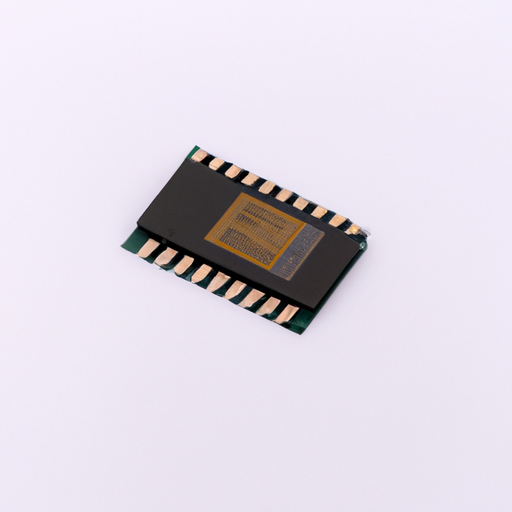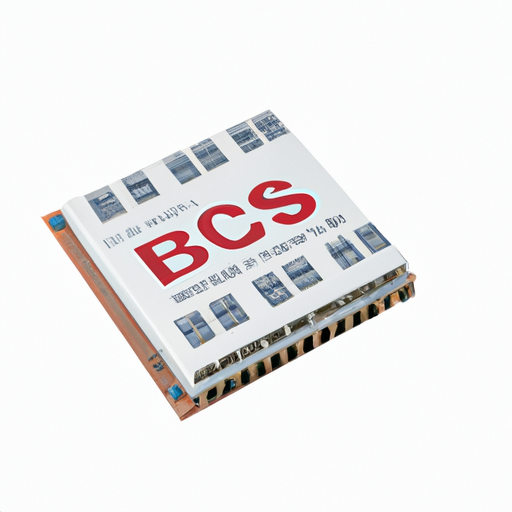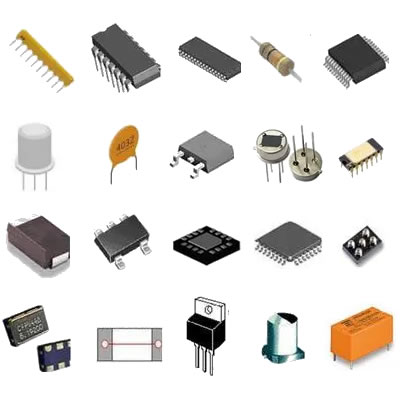What industries are the application scenarios for resistor recycling included?
What Industries Are the Application Scenarios for Resistor Recycling Included?
I. Introduction
In an age where electronic devices are ubiquitous, the issue of electronic waste (e-waste) has become increasingly pressing. Among the various components that make up electronic devices, resistors play a crucial role in regulating electrical currents and ensuring the proper functioning of circuits. Resistor recycling is the process of recovering valuable materials from discarded resistors, thereby reducing waste and promoting sustainability. This blog post will explore the importance of resistor recycling and the various industries that benefit from its application.
II. The Electronics Industry
The electronics industry is perhaps the most significant sector impacted by resistor recycling. Resistors are fundamental components in virtually all electronic devices, from simple household gadgets to complex industrial machinery. As the demand for electronic products continues to rise, so does the volume of e-waste generated.
A. Role of Resistors in Electronic Devices
Resistors are used to control the flow of electric current, divide voltages, and protect sensitive components from damage. They are found in consumer electronics such as smartphones, laptops, and televisions, as well as in industrial electronics like automation systems and control panels.
B. Importance of Recycling in Reducing Electronic Waste
Recycling resistors not only helps in recovering valuable materials like copper, tin, and other metals but also significantly reduces the environmental impact associated with e-waste. By recycling, we can minimize the need for new raw materials, thereby conserving natural resources and reducing energy consumption.
C. Application Scenarios
1. **Consumer Electronics**: The rapid turnover of consumer electronics leads to a significant amount of e-waste. Resistor recycling can help recover materials from discarded devices, making it a vital practice in this sector.
2. **Industrial Electronics**: Automation systems and control panels often contain numerous resistors. Recycling these components can help manufacturers reduce costs and improve sustainability.
3. **Telecommunications Equipment**: With the growing demand for faster and more reliable communication, the telecommunications sector relies heavily on electronic components, including resistors. Recycling can help manage the waste generated by outdated or broken equipment.
III. Automotive Industry
The automotive industry is undergoing a transformation with the increasing integration of electronic components in vehicles. Modern cars, especially electric and hybrid vehicles, contain a multitude of resistors that are essential for their operation.
A. Increasing Electronic Components in Modern Vehicles
Today's vehicles are equipped with advanced technologies that enhance safety, performance, and entertainment. This trend has led to a surge in the number of electronic components, including resistors, in automotive design.
B. Importance of Resistor Recycling for Sustainability
As the automotive industry shifts towards sustainability, resistor recycling plays a crucial role in minimizing the environmental impact of vehicle production and disposal.
C. Application Scenarios
1. **Electric Vehicles (EVs) and Hybrid Vehicles**: These vehicles rely heavily on electronic systems for battery management, energy efficiency, and performance monitoring. Recycling resistors from old vehicles can help recover valuable materials for new production.
2. **Advanced Driver-Assistance Systems (ADAS)**: ADAS technologies, such as lane-keeping assistance and adaptive cruise control, require numerous electronic components, including resistors. Recycling these components can support the development of safer vehicles.
3. **In-Vehicle Infotainment Systems**: As cars become more connected, the demand for advanced infotainment systems grows. Resistor recycling can help manage the waste generated by outdated systems.
IV. Renewable Energy Sector
The renewable energy sector is rapidly expanding, with a growing reliance on electronic components in systems such as solar panels and wind turbines.
A. Growing Reliance on Electronic Components in Renewable Energy Systems
Renewable energy systems often incorporate complex electronic controls and monitoring systems, which include resistors. As the sector grows, so does the need for sustainable practices, including recycling.
B. Importance of Recycling for Environmental Sustainability
Recycling resistors from renewable energy systems can help reduce the environmental footprint of these technologies, ensuring that they remain sustainable in the long run.
C. Application Scenarios
1. **Solar Energy Systems**: Inverters and controllers used in solar energy systems contain resistors that can be recycled to recover valuable materials.
2. **Wind Energy Systems**: Control systems in wind turbines also rely on resistors. Recycling these components can help support the growth of renewable energy.
3. **Energy Storage Systems**: Batteries and management systems used in energy storage solutions contain resistors that can be recycled, contributing to a circular economy.
V. Medical Devices and Equipment
The medical field relies heavily on electronic devices, many of which contain resistors.
A. Importance of Resistors in Medical Technology
Resistors are critical in diagnostic equipment, monitoring devices, and therapeutic devices, ensuring their proper functioning and accuracy.
B. Regulatory Considerations for Recycling in the Medical Field
Due to the sensitive nature of medical devices, recycling in this sector must adhere to strict regulations to ensure safety and compliance.
C. Application Scenarios
1. **Diagnostic Equipment**: Devices like MRI and CT scanners contain numerous resistors. Recycling these components can help recover valuable materials while ensuring compliance with medical regulations.
2. **Monitoring Devices**: ECG machines and blood pressure monitors rely on resistors for accurate readings. Recycling can help manage the waste generated by outdated devices.
3. **Therapeutic Devices**: Infusion pumps and surgical instruments also contain resistors. Recycling these components can support sustainability in the medical field.
VI. Aerospace and Defense
The aerospace and defense industries are critical sectors where reliability and performance are paramount. Resistors play a vital role in various applications within these fields.
A. Critical Role of Resistors in Aerospace and Defense Applications
Resistors are essential in avionics systems, military communication systems, and satellite technology, ensuring the proper functioning of these complex systems.
B. Importance of Recycling for National Security and Environmental Impact
Recycling resistors in aerospace and defense applications not only supports national security by ensuring the availability of critical components but also helps mitigate environmental impacts.
C. Application Scenarios
1. **Avionics Systems**: These systems rely on resistors for navigation and communication. Recycling can help recover materials for future use.
2. **Military Communication Systems**: Resistors are crucial in ensuring reliable communication in defense applications. Recycling can support the sustainability of these systems.
3. **Satellite Technology**: Satellites contain numerous electronic components, including resistors. Recycling can help manage the waste generated by outdated or decommissioned satellites.
VII. Telecommunications
The telecommunications industry is another sector that heavily relies on resistors for its infrastructure.
A. Role of Resistors in Communication Infrastructure
Resistors are used in various telecommunications equipment, ensuring the proper functioning of networks and communication systems.
B. Importance of Recycling for Network Sustainability
As the demand for communication services grows, so does the need for sustainable practices, including resistor recycling.
C. Application Scenarios
1. **Data Centers**: These facilities rely on numerous electronic components, including resistors. Recycling can help manage the waste generated by outdated equipment.
2. **Mobile Network Infrastructure**: Resistors are essential in ensuring reliable communication in mobile networks. Recycling can support the sustainability of these systems.
3. **Fiber Optic Systems**: Resistors are used in various components of fiber optic systems. Recycling can help recover valuable materials for future use.
VIII. Conclusion
In conclusion, resistor recycling is a vital practice that impacts various industries, from electronics and automotive to renewable energy and medical devices. As the world continues to grapple with the challenges of electronic waste, the importance of sustainable practices like resistor recycling cannot be overstated.
A. Summary of the Importance of Resistor Recycling Across Various Industries
Recycling resistors not only helps recover valuable materials but also contributes to environmental sustainability and resource conservation. Each industry discussed plays a crucial role in promoting these practices.
B. Future Trends in Resistor Recycling and Electronic Waste Management
As technology continues to evolve, the need for effective electronic waste management will only grow. Future trends may include advancements in recycling technologies and increased collaboration between industries to promote sustainability.
C. Call to Action for Industries to Adopt Sustainable Practices in Resistor Recycling
It is imperative for industries to adopt sustainable practices in resistor recycling. By doing so, they can contribute to a circular economy, reduce their environmental impact, and ensure a more sustainable future for generations to come.







